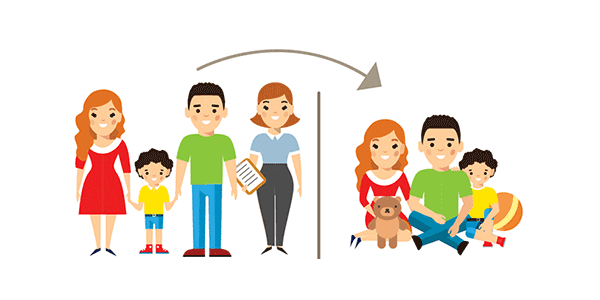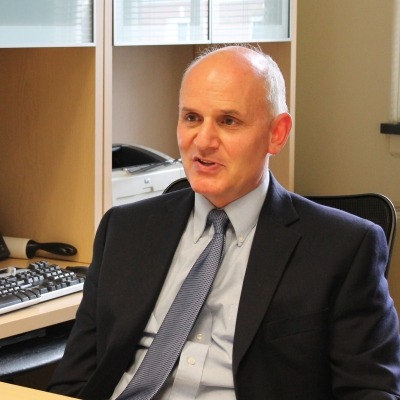Survey of 2500 families finds what ADHD treatments seem to work/ not work as applied in the real world

Credit: CDC Vital Signs
While carefully controlled clinical trials are essential for establishing scientific support for different ADHD treatments, it is also important to examine how parents feel about the treatments they actually select for their child.
How parents feel about ADHD treatments they have tried for their child provides an important complement to published clinical trials data, and can also help guide parents’ treatment choices.
Results from a survey conducted by ADDitude Magazine of nearly 2500 parents provides helpful data on this question. In this survey, parents were asked about how helpful they had found the treatment strategies they were using currently, or had used in the past.
How often are different treatments used?
Despite being infrequently recommended by physicians and other clinicians, a wide-range of non-medical treatments were being used by parents.
Below are data on 10 different treatment approaches reported by parents in descending order of frequency. The percentages sum to more than 100% because many children were receiving multiple treatments and/or had previously used different treatments.
- 67% — Prescription medication
- 37% — Exercise
- 36% — Vitamins, minerals, or supplements
- 29% — Diet/nutrition plan
- 26% — ADHD coaching/counseling
- 13% — Mindfulness meditation
- 10% — Behavior therapy/parent-training classes
- 5% — Neurofeedback with a clinician
- 3% — Home-based brain training
It is not surprising that medication treatment, which currently has the strongest research support of any ADHD treatment, was clearly the most common treatment utilized.
However, behavior therapy is generally regarded as the other ADHD treatment with the strongest research support and it was used less often than many treatments that have less supportive research. This may reflect challenges that parents face in accessing this treatment in their community.
How well do parents feel different treatments work?
Below is the percent of parents who reported that each treatment type was either ‘Extremely or Very Effective’.
- 49% — Exercise
- 41% — Prescription medication
- 33% — ADHD coaching/counseling
- 33% — Behavior management/parent-training classes
- 30% — Neurofeedback with a clinician
- 27% — Mindfulness meditation
- 24% — Diet/nutrition plan
- 24% — Home-based brain training
- 14% — Vitamins, minerals, or supplements
Below is the converse of this data, i.e., the percent of parents who found each treatment ‘Not very effective or Not at all effective’.
- 5% — Exercise
- 13% — Behavior management/parent-training classes
- 19% — ADHD coaching/counseling
- 19% — Mindfulness meditation
- 26% — Prescription medication
- 27% — Diet/nutrition plan
- 27% — Neurofeedback with a clinician
- 33% — Home-based brain training
- 42% — Vitamins, minerals, supplements
Several aspects of these results are noteworthy.
First, exercise was the ADHD treatment approach most likely to be rated as effective and least likely to be seen as ineffective. What parents perceive about exercise is ahead of the current science, as research on exercise as an ADHD treatment is rather limited; I expect we will begin seeing a number of studies on this topic appearing over the next several years.
Second, although medication is widely regarded as the ADHD treatment with the strongest research support, only a minority of parents felt it was very effective for their child. And, 26% of parents felt it was not effective. This highlights the limitations of even well-researched treatments for ADHD.
Third, no treatment was regarded as very effective by a majority of parents, and all treatments were rated as very effective by at least some parents. Thus, while there is is no single approach that is likely to be seen as very effective for the majority of children there are many approaches that parents felt were quite helpful to their child.
This suggests although the initial treatment(s) implemented not be sufficiently helpful, other approaches may yield results that parents see as quite beneficial. Accessing those treatments can be challenging, however, and many treatments are not covered by insurance.
Summary and implications
Results from this survey complement evidence from clinical trials of ADHD treatment by indicating how parents feel about the different treatments they try.
While it is discouraging that no treatment was felt to be very effective by most parents, it is encouraging that multiple treatments were reported to work well by some parents. The challenge thus remains finding a treatment approach — or combination of treatments — that is most effective for individual children. That is not easy and is highlighted in this quote from one of the survey participants:
“It is overwhelming at times to try to do all of these treatments,” wrote one caregiver. “I feel parents are on their own… We would have benefited from an interdisciplinary team including pediatrician, therapist and teacher meeting once a year at least and have someone coordinate with us throughout the year to check in.”
Several limitations to this type of study should be noted.
First, this is not a nationally representative sample of parents but a convenience sample of parents who chose to complete the survey. The extent to which their experience generalizes to all parents of children with ADHD is not known.
Another challenge is that it is not possible to know the details of the treatments actually provided. A benefit of controlled clinical trials is that the treatment is clearly specified, i.e., you know with confidence what treatment actually entailed. That is not true for a study like this. For example, results indicate that 49% of parents felt exercise was effective for their child. What exercise-based interventions included is unknown, however, and would almost certainly be highly variable across children. The same would be true for any of the treatments that were rated.
A final issue is that parents’ reports about the effectiveness of their child’s treatment may be biased, as parents who devote time and money for a particular treatment may be inclined to view it as effective, even if ‘more objective’ outcome data would not support this. This is why clinical trials go to great lengths to obtain outcome information from individuals who are ‘blind’ as to whether study participants are in a treatment or control group. While this is an important concern, discounting parents’ perceptions of treatment response is problematic given their intimate knowledge of their child. And, because no treatment was rated as very effective by most parents, it is not the case that parents are biased towards seeing anything they try as beneficial.
In summary, results from this survey may help inform parents seeking effective ADHD treatment for their child that complements what has been learned from research-based clinical trials.
Although current treatment recommendations would focus on stimulant medication and behavior therapy as the ADHD treatments with strongest research support, these findings highlight other options that parents have found to be helpful.
In particular, it is evident that no treatment is likely to produce benefits that most parents will be satisfied with. As a result, persistence in finding what works best for one’s child — although challenging — will often be required.

– Dr. David Rabiner is a child clinical psychologist and Director of Undergraduate Studies in the Department of Psychology and Neuroscience at Duke University. He publishes the Attention Research Update, an online newsletter that helps parents, professionals, and educators keep up with the latest research on ADHD.
The Study in Context:
- What should come first to treat ADHD in children, behavior therapy or stimulant medication?
- A brief sleep intervention can bring measurable and sustained benefits to children with ADHD
- Study finds combined pharma + non-pharma treatment most beneficial to help youth with ADHD address long-term academic difficulties
- Having ADHD costs $1.1 million in lower lifetime earnings, even when “treated”
- What are cognitive abilities and how to boost them?


